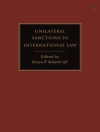The
European Yearbook of Constitutional Law (EYCL) is an annual publication devoted to the study of constitutional law. It aims to provide a forum for in-depth analysis and discussion of new developments in the field, both in Europe and beyond.
This third volume of the EYCL focuses on constitutional advice, an underexplored topic of legal scholarship today, and addresses this situation by looking beyond constitutional law’s familiar focus on the classic separation of powers and the main legislative, executive and judicial bodies implied by this construct. The attention is shifted to mapping and analysing the advisory bodies and functions grouped around and in support of the legislators, administrators and judges at the frontline of the constitutional edifice, which is accomplished through national, comparative and transnational perspectives on constitutional advice from Europe and beyond. Addressing the topic of constitutional advice is necessary to broaden and deepen not only our understanding of advice as a field in its own right, but also as a way of rendering a fuller account of contemporary constitutionalism. Also, the increasing political polarisation across many societies today underscores the need to study constitutional advice on topics of significance in an attempt to bridge divides and end gridlock.
This book will be of special interest to constitutional scholars and legal scholars more generally, as well as to political scientists. In addition, government officials, judges and policy-makers wishing to better understand the legal mechanisms and avenues when it comes to rendering or receiving advice in the contemporary constitutional context will find much of relevance.
Jurgen de Poorter is professor at Tilburg Law School, Department of Public Law and Governance.
Gerhard van der Schyff is associate professor at Tilburg Law School, Department of Public Law and Governance.
Maarten Stremler is assistant professor at Maastricht University, Faculty of Law, Department of Public Law.
Maartje De Visser is associate professor at Yong Pung How School of Law, Singapore Management University, Singapore.
Tabla de materias
Chapter 1. Introduction: Mapping the Emerging Field of Constitutional Advice.- Chapter 2. Some Advice on Constitutional Advice.- Chapter 3. Do We Need Constitutional Advice? Denmark – The Story of a Self-Sufficient Political System.- Chapter 4. Constitutional Advice and Signals in the Netherlands: Actors and Impact.- Chapter 5. The Council of State of Belgium: Advising the Political Branches, and the Constitutional Court.- Chapter 6. Advising on Constitutional Matters in a Mixed Legal System: The Example of Cyprus.- Chapter 7. Understanding the Dilemma of Constitutional Advice in Transitional Societies: A Comparative Analysis of Ghana and Colombia.- Chapter 8. Openness of Constitutional Review: A Comparative Analysis of How Transparency is Ensured in Ex Ante Constitutional Review.- Chapter 9. Constitutional Reasoning There and Back Again: The Facebook Oversight Board as a Source of Transnational Constitutional Advice.- Chapter 10. Advisory Opinions of the Dutch Council of State as Contributions to a Constitutional Dialogue.- Chapter 11. Courts as Consiglieri: Advisory Opinions in a Comparative Constitutional Perspective.












